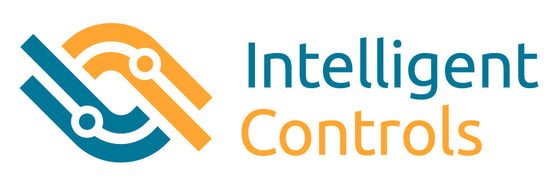
Going off-grid with Victron Energy
Q&A with homeowner & electrician Eric Enquist
Victron solar installer Eric Enquist lives off-grid with his family of five in Boulder, Montana. We caught up with Eric after a Victron training in Bozeman to learn more about his power system and what advice he gives to those looking to design their own systems.

The Enquist family.
Eric, you had a grid connection at your home. What gave you the confidence to disconnect from the grid?
I'm an electrician, and I had wired a few systems for homeowners that had bought Victron Energy systems from Intelligent Controls, including one of my neighbors. I was pleased with the quality and decided that if I wanted to learn more about Victron, I needed hands-on experience and an understanding of how the systems perform over time. That's why I installed my system in July of 2022.

Eric's system uses a Victron MultiPlus-II inverter charger, Autotransformer, SmartSolar MPPT RS, Lyxn Distributor, Cerbo GX and Touch 50 display.
That might sound kind of crazy to some. Why did you want to take your house off-grid?
Self-reliance. Not having a power bill to pay for the next 30 years. And, to say that I could do it. Earlier in my career, I worked in utilities, which, as we've all seen, are vulnerable. I wanted a power system that I could manage myself. We had moved to Montana from Washington, intending to build an off-grid home, and that didn't happen right away. This felt like the right time for our family.
Tell us about the system you've installed.
I have 17 panels, approximately 5,675 Watts on two arrays on a ground-mounted structure, a 450V 100 Amp solar charge controller, 8000 VA MultiPlus inverter/charger, and five 48V 75 Amp hour LiFePO4 batteries with a combined reserve capacity of 15 KWh.
Conventional wisdom says to put solar panels on your roof, but they're less efficient on a roof than on an independent solar array. If you have the real estate, I advise homeowners not to put the panels on the roof. Put them on a standing array. There are a lot of benefits to having them on the ground. You can get the snow off them; the heat doesn't affect them as much. I have one panel facing east, and I'm bringing in power even in the winter.

Has it been a big adjustment for your family?
It really hasn't, but that's because we designed an adequate system upfront. I have switched from propane to a hybrid heat pump which we use to heat our 50-gallon hot water tank. Like everyone, we're running blenders and toasters and have yet to have any issues. I just try to nudge the kids to be good stewards of the power we have. We have continued to heat the house with a wood stove, which was not a consideration when sizing the system.
How are you doing in terms of generator run time?
This was our first winter living with the system, and I ran the generator for 4 or 5 hours a week. We'll see how we do this summer, and I might make some adjustments from there.
What's one of the first questions to answer when planning an off-grid solar system?
I start by asking about the well pump. Aside from an electric clothes dryer, the well pump is usually the most significant power draw on a home or cabin. If you still need to install your pump, request a soft start type of pump from your installer. Most well companies can accommodate that, and your inverter will not have to provide as much inrush current for start-up. Most are ¾ horsepower pumps. If, for example, your well pump is 2hp, an 8kVA Quattro or larger inverter to easily cover the rest of your loads. Smaller inverters are the way to go if you're running lights, a refrigerator, and using propane for heating. My 8,000VA inverter will run my dryer, but we try not to run other appliances simultaneously to avoid running the batteries too far down.

Another consideration is water heating. The most common approach is to use propane for on-demand water heating. I use an electric heat pump, (a hybrid style water heater), and we can keep our batteries at no lower than a 40% state of charge.
When looking at which inverter is right for you, remember that your inverter is also a charger, so small inverters paired with large generators make for an inefficient combination. The issue is that in the market, there are very limited options for small auto-start generators.
What's a common mistake or oversight made when planning an off-grid solar system?
Well, speaking to other solar installers, my advice is: don't be afraid to ask questions and find out what kind of customer you are working with. Are they a hands-on or hands-off type of person? Will they live in the home full-time or for a few months or weeks a year? It's not uncommon for people to go with flooded-acid batteries because of the lower cost. If they're hands-on and know how to care for lead acid, that's great.
If it's a hands-off homeowner, don't be afraid to encourage them to go Lithium. There is less for them to mess with. I've seen homeowners invest in Victron inverter systems but insist on a battery system that later fails. It's not a happy situation, especially if they need to replace their inverter in order to install a lithium battery bank. To get the appropriate charge, the system must be sized for the batteries.

After adding a sixth battery, Eric's lithium battery bank provides 15 KWh of usable power.
Got it. Lithium has its challenges too. Any advice for keeping a Lithium battery bank happy?
They do. They need to be in a somewhat heated environment, so either you live in the home and are heating it through the winter, or you are willing to heat that space while you're not there. Lithium might not be a great idea if it's a seasonal vacation cabin getting minimal use. But for residential off-grid systems, I recommend Lithium because of the energy density and how long lithium batteries can last. The 48V Pylontech batteries in my system have a lifespan of +6,000 cycles, but that's all based on an 'ideal environment,' including temperature. Your battery bank needs to be large enough not to swing too far below that 60% state of charge (SOC) on a daily basis because that drains the life out of them - and that's as true for Lithium as it is for lead acid. The closer you stay in the upper SOC percentile, the longer those batteries will last. When plugged into a Victron system, the battery's BMS communicates with the inverter, so you really don't have to do anything. The battery is updating the inverter, which is responding in turn.
Related Reading >>> The Path to Lithium Started with Cold Dead Lead
Much of the year, these systems are powered by the sun only, and the batteries really don't work that hard. At other times of the year, we need a little more capacity, typically in the winter.
Is it a good idea to oversize the battery bank in most cases?
Batteries are a big investment, but if you can, yes. Give yourself more margin with a bit more battery storage. One thing I like about the Pylontech batteries is that you can start with a couple, see how your system does, and add more. I started with five and ended up adding one for a total of six.
Traditionally, you didn't do that. With flooded batteries, once they are tied together in a string for a few months, you don't want to replace one of the batteries. You can, but it's just standard practice to replace all of them. The battery chemistry of Lithium is more forgiving in that sense.
If you don't have a generator set up to charge your battery bank when it falls below a certain threshold, you will need to monitor how many times a week your batteries get to a 100% charge. The longer you let them drag without getting up to a full charge, the shorter the lifespan.
I've made my system big enough such that if, for some reason, we couldn't get fuel for the generator or fuel costs spiked, we could do without the generator. We would just reduce our loads. And if I want to expand my system in the future, I could because I've chosen an inverter that is slightly bigger than I need.
Do you use Victron Remote Monitoring (VRM)? What are a few indicators homeowners should learn to watch?
The main display on VRM gives the best snapshot of what's happening. I like to watch the PV coming in and that battery SOC.

Eric's power system on Victron's free remote monitoring platform, VRM.
Change the timeframe to 30 days to see actual trends; the solid line is your average % SOC for that day. The light blue lights represent the battery's minimum and maximum SOC%. If you're not reaching 100% once every few weeks, you need to make some adjustments. Is there tree shading and wiping out your solar array? Do you need to look at adding another solar panel? You're not going to hurt the batteries by not fully charging them, but you're also not going to balance them if you're not fully charging them. Over the long term, this will result in less capacity. Of course, you can always get it back by charging your batteries but if they are significantly out of whack, say 12 months without a full charge, it will take up to 4 hours to get them balanced again.
Look at your consumption data on VRM as well. Is there anything you weren't expecting to see? If you use a generator, seeing the number of times your generator ran in a week or this month compared to three months ago might be important to you.
As an installer, looking at a homeowner's system from my home computer without going to them is pretty handy. I haven't done much of that yet. When these systems are set up correctly, they just work.
To summarize, give me three things a homeowner should take their time to consider before investing in an off-grid power system.
- Understand your loads: The system will not appropriately charge your batteries if it's not sized correctly.
- Be honest: Are you a hands-off or a hands-on kind of person? Lithiums are more expensive in the short term, but your system needs to serve you well for a very long time.
- Give yourself margin: If you can, oversize your inverter so that you have the flexibility to add more solar panels or batteries in the future. And if you can, put your solar arrays on the ground, not the roof.
Thanks, Eric.
Anytime!
About Boulder Electric
From early system design to final commissioning, Boulder Electric offers professional installation of off-grid home solar and backup power systems using Victron Energy components. To learn more about their services or request a free estimate, connect with them on their website, www.boulderelectricmt.com, or call at 406-600-9094.
